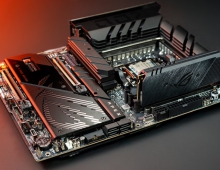
AMD COVID-19 HPC Fund to Deliver Supercomputing Clusters to Researchers Combatting COVID-19
AMD and technology partner Penguin Computing Inc., a division of SMART Global Holdings, Inc., announced that New York University (NYU), Massachusetts Institute of Technology (MIT) and Rice University are the first universities named to receive complete AMD-powered computing systems from the AMD HPC Fund for COVID-19 research.
AMD also announced it will contribute a cloud-based system powered by AMD EPYC and AMD Radeon Instinct processors located on-site at Penguin Computing, providing remote supercomputing capabilities for selected researchers around the world.
“High performance computing technology plays a critical role in modern viral research, deepening our understanding of how specific viruses work and ultimately accelerating the development of potential therapeutics and vaccines,” said Lisa Su, president and CEO, AMD. “AMD and our technology partners are proud to provide researchers around the world with these new systems that will increase the computing capability available to fight COVID-19 and support future medical research.”
The recipient universities are expected to utilize the new compute capacity across a range of pandemic-related workloads including genomics, vaccine development, transmission science and modeling. Additionally, scientists from around the world conducting COVID-19 research can request access to the remote AMD-powered cloud HPC cluster at Penguin Computing by submitting proposals to COVID-19HPC@amd.com.
AMD has joined with HPC and AI solutions firm Penguin Computing to define, build, and deliver the on-premises systems and Penguin’s Penguin on Demand (POD) cluster, powered by AMD. Penguin Computing’s POD support will be collocated in data center space donated by DataBank. Contributions from Penguin Computing, NVIDIA, Gigabyte, and others are helping the AMD HPC Fund advance COVID-19 research.
Gigabyte is supplying its G290-Z21 compute nodes for the Penguin clusters, built around a single, 48-core AMD EPYC 7642 processor paired with eight Radeon Instinct MI50 GPU accelerators. The system R182-291 management nodes, also from Gigabyte, each utilize two 16-core, AMD EPYC 7302 processors.
In addition to the initial donations of $15 million of high-performance computing systems, AMD has contributed technology and technical resources to nearly double the peak system of the “Corona” system at Lawrence Livermore National Laboratory which is being used to provide additional computing power for molecular modeling in support of COVID-19 research.





















